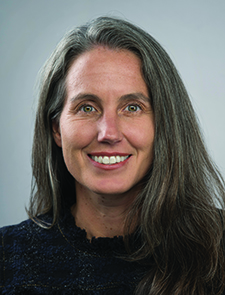World Mental Health Day was Oct. 10, with the theme that mental health is a universal basic human right. On that day, I watched an interview with the current Surgeon General Vivek Murthy, MD, who was also the surgeon general during the Obama administration. He discussed the loneliness that he felt after the end of his first term because he had focused primarily on work and had lost touch with many friends and family.
Explore This Issue
December 2023Many in healthcare will relate to this story, as we spend years focused on getting into medical school, getting through residency, and growing a new practice. If relationships aren’t maintained or if new ones aren’t developed, we can find ourselves without a network of friends, and that can negatively impact mental health and well-being. Even with a network of close and supportive friends and family, nourishing those relationships can be a challenge during stressful times.
Recently, one of our residents shared a story about how she had a falling-out with her best friend, who isn’t in healthcare, about her lack of time to spend with her friend or even to talk on the phone. You could hear how torn she was. She wanted to spend more time with her friend, whose advice she had come to depend upon since childhood, but the demands of her current role, with long unpredictable days, limited her ability to make the necessary time.
During the recent Society of University Otolaryngologists meeting, there was robust discussion about mental health and the creation of wellness committees and wellness days for residents. Residents reported that things like this are infrequently used, however, because of the lack of cultural acceptance from the faculty in some settings. Does this stem from faculty feeling jealous that residents are getting something they didn’t as residents, or that faculty don’t feel residents have time for these breaks because of reduced physician autonomy, increased RVU requirements, and mandated longer workdays without increased pay?
The answer was unclear, but a positive way forward seems to be for faculty to also prioritize their own well-being and take time for self-care and the care of loved ones. The best way for faculty to positively change culture is to model good behavior. To be able to effectively do this at scale, we have to have healthcare systems that incorporate physician well-being and mental health into their strategic plans.
I’ve been guilty of focusing too deeply on work during different stages of my career. There are times in life when work demands an all-encompassing effort. I’ve come to realize the importance of acknowledging to loved ones how important they are to me and to make an intentional effort to make time for friends and family. During this holiday season, stay connected to those around you and reach out to a friend that you haven’t seen in a while. Wishing everyone a fulfilling and peaceful holiday season and New Year.
—Robin
